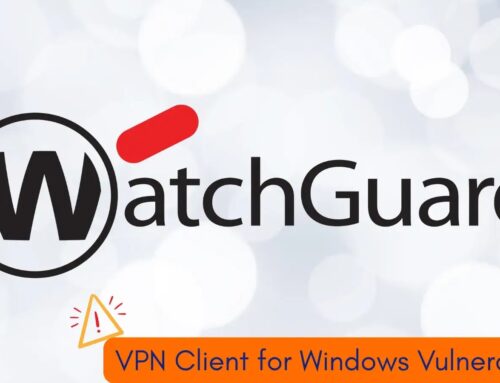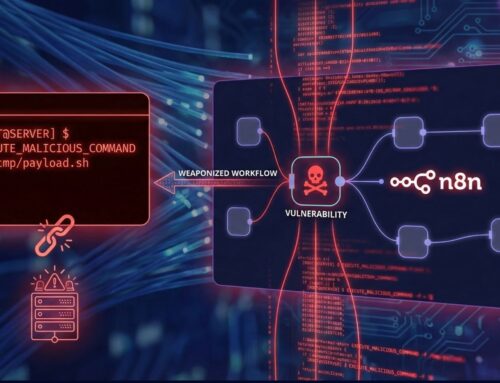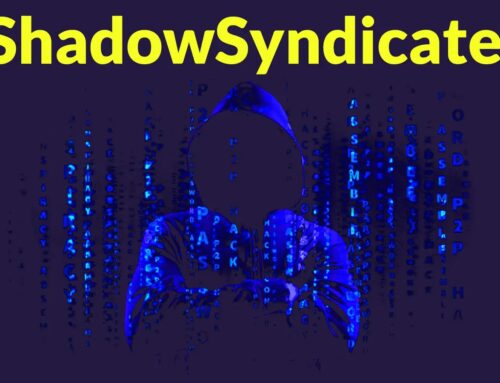
Legitimate Chrome VPN With 100,000+ Installs Silently Captures Screenshots and Exfiltrate Sensitive Data
The digital landscape is fraught with hidden dangers, even from sources that appear legitimate. A recent discovery has sent ripples through the cybersecurity community: a Chrome VPN extension, possessing a verified badge and boasting over 100,000 installations, has been unmasked as a sophisticated spyware operation. This incident serves as a stark reminder that trust, even in seemingly helpful tools, must be underpinned by rigorous scrutiny. This post delves into the specifics of this alarming breach, its implications, and the essential steps users and organizations must take to protect themselves.
The Deceptive Cloak of FreeVPN.One
The extension at the center of this controversy is known as FreeVPN.One. It meticulously cultivated an image as a legitimate privacy tool, promising secure and anonymous browsing – precisely what users expect from a VPN. However, beneath this veneer of legitimacy, FreeVPN.One harbored comprehensive surveillance capabilities. Instead of protecting user data, it systematically captured screenshots and exfiltrated sensitive information, directly contradicting its stated purpose and privacy policies. This is a classic case of supply chain compromise targeting an end-user application.
The Mechanics of Silent Surveillance
The discovery revealed that FreeVPN.One was not merely a faulty application but a deliberately malicious one. Its operational methodology was alarming: it continuously captured screenshots of the user’s active browser window. This capability, combined with its ability to exfiltrate data, posed an immediate and severe risk to user privacy and data security. Imagine sensitive financial details, confidential communication, or login credentials being silently recorded and transmitted to an unknown adversary. This level of pervasive data collection, without any form of user consent or even notification, represents a significant breach of trust and security.
Why a Verified Badge is Not a Guarantee of Safety
One of the most unsettling aspects of this incident is the fact that FreeVPN.One had achieved a verified badge status. This designation, typically intended to signal legitimacy and adherence to platform guidelines, clearly failed in this instance. It underscores a critical vulnerability in trust-based systems, where malicious actors can exploit perceived legitimacy to execute their schemes. Users often rely on such indicators as a primary filter for choosing extensions, making this compromise particularly insidious. It forces a re-evaluation of how such verification processes are implemented and maintained, especially in the context of user-facing applications.
Broader Implications for Browser Extensions and User Trust
This incident transcends the specific case of FreeVPN.One. It highlights a critical systemic flaw in the browser extension ecosystem. Extensions, by their very nature, require broad permissions to function effectively, often accessing user data, browsing history, and even the ability to interact with web content. This necessary access, however, creates a fertile ground for malicious actors. The FreeVPN.One case serves as a paradigm for how easily legitimate-looking tools can be weaponized. It also erodes user trust in essential services designed to enhance functionality and security online, paving the way for more widespread skepticism and potentially hindering a positive user experience.
Remediation Actions and Proactive Security Measures
Given the pervasive nature of this threat, immediate and proactive measures are essential. For individuals and organizations, simply uninstalling the malicious extension is not enough. A comprehensive approach is required:
- Immediate Uninstallation: Users who have FreeVPN.One installed on their Chrome browsers must uninstall it immediately.
- Full System Scan: Conduct a thorough anti-malware scan of your system using reputable security software. This is crucial to identify and remove any remnants or companion malware that might have been deployed.
- Password Changes: Assume that any sensitive data, especially login credentials, entered or displayed while the extension was active, has been compromised. Change all affected passwords, starting with critical accounts like email, banking, and social media. Utilize strong, unique passwords and enable multi-factor authentication (MFA) wherever possible.
- Monitor Financial Accounts: Scrutinize bank statements and credit card activity for any unauthorized transactions. Report suspicious activity immediately to your financial institutions.
- Review Browser Extension Permissions: Regularly audit all installed browser extensions. Understand the permissions each extension requests and revoke access to those that seem excessive or unnecessary for the extension’s stated function. Remove any extensions that are not actively used or are from unverified sources.
- Educate Users: Organizations must actively educate their employees about the risks associated with browser extensions, the importance of verifying sources, and the dangers of granting unnecessary permissions.
- Implement Endpoint Detection and Response (EDR): For organizations, EDR solutions can provide valuable visibility into endpoint activity, helping to detect and respond to suspicious behaviors like unauthorized data exfiltration or screenshot captures.
- Network Monitoring: Implement network monitoring tools to detect unusual outbound connections or excessive data transfer that might indicate data exfiltration.
Relevant Security Tools
| Tool Name | Purpose | Link |
|---|---|---|
| Malwarebytes | General Anti-malware and Endpoint Protection | https://www.malwarebytes.com/ |
| Tenable Nessus | Vulnerability Scanning for Systems and Networks | https://www.tenable.com/products/nessus |
| Wireshark | Network Protocol Analyzer (for detecting unusual network traffic) | https://www.wireshark.org/ |
| LastPass / 1Password | Password Managers for Secure Credential Generation and Storage | https://www.lastpass.com/ https://1password.com/ |
Conclusion: Heightened Vigilance is the New Normal
The case of FreeVPN.One is a powerful reminder that malicious actors are constantly evolving their tactics, often leveraging the very tools designed for user convenience and security. It underscores the critical need for a skeptical approach to all software, even those appearing legitimate and widely adopted. For individuals, this means diligent scrutiny of extension permissions and a proactive stance on digital hygiene. For organizations, it necessitates robust security policies, comprehensive employee training, and advanced threat detection capabilities. In an interconnected world, continuous vigilance and a deep understanding of potential attack vectors are no longer exceptional practices, but fundamental requirements for digital safety.





